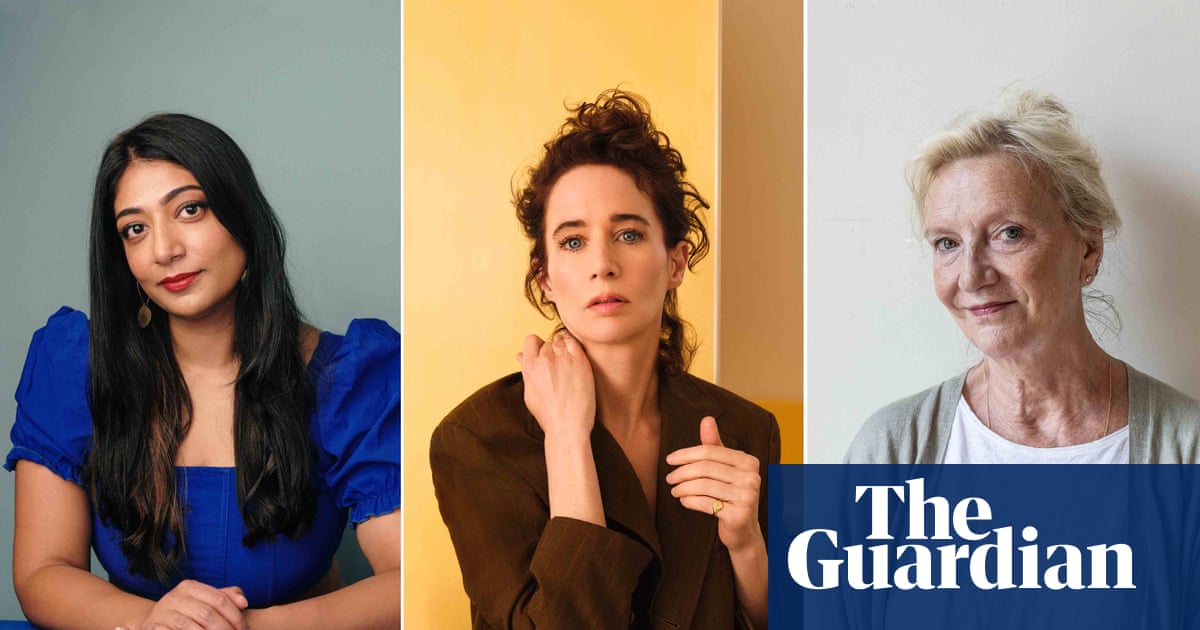American writers Miranda July and Elizabeth Strout have been shortlisted for the 30th Women’s prize for fiction alongside four debut authors.
The six titles in contention for the £30,000 prize all draw on “the importance of human connection” in different ways, said writer and judging chair Kit de Waal. “What is surprising and refreshing is to see so much humour, nuance and lightness employed by these novelists to shed light on challenging concepts.”
Quick Guide
Women’s prize for fiction shortlist 2025
Show
July was selected for All Fours, which follows a 45-year-old artist who sets out on a road trip across the US but decides to check into a motel room close to home instead, where she begins a sexless affair with a younger man. The novel was described as “acerbically clever, radically compassionate”, in a Guardian review by Lara Feigel.
Strout – who has previously been longlisted four times and shortlisted twice – was this time chosen for Tell Me Everything, in which characters from her previous novels, Olive Kitteridge and Lucy Barton, meet. Writing in the Guardian, Elizabeth Lowry described the novel as “taciturn but deeply felt and profoundly intelligent”.
Dutch writer Yael van der Wouden’s debut novel The Safekeep, which was shortlisted for last year’s Booker prize, has also won over the Women’s prize judges. Van der Wouden’s family drama set in postwar Netherlands was praised by Guardian reviewer Rachel Seiffert for the way the author “creates and sustains atmospheres deftly, and ultimately delivers a thrilling story”.
Nussaibah Younis was shortlisted for Fundamentally, about an academic who accepts a UN job in Iraq and is tasked with rehabilitating Isis women. “Younis tackles radicalism and racism, faith and friendship, with dexterity, deep care and a large dose of laughter”, wrote Sana Goyal in her Guardian review.
Aria Aber made the list for Good Girl, a coming-of-age story following Nila, a daughter of Afghan refugees growing up in Berlin. “Good Girl is a must-read about the complexities of Afghan sexuality, family, shame, poverty and power,” wrote Dina Nayeri in the Guardian.
Completing the shortlist is The Persians by Sanam Mahloudji, a multigenerational story of five women from a once-illustrious Iranian family. “Mahloudji writes with a wisdom and confidence rarely seen in a debut, and her sharp observations are humorous and poignant,” wrote Joanna Cannon in her Guardian review.
after newsletter promotion
One of the best-known writers on the longlist, Chimamanda Ngozi Adichie did not make this year’s shortlist for her novel Dream Count. She was shortlisted for all three of her previous novels and won both the 2007 prize and the 25th anniversary “winner of winners” award in 2020.
Other longlisted books were The Ministry of Time by Kaliane Bradley, Somewhere Else by Jenni Daiches, Amma by Saraid de Silva, Crooked Seeds by Karen Jennings, The Dream Hotel by Laila Lalami, Nesting by Roisín O’Donnell, A Little Trickerie by Rosanna Pike, Birding by Rose Ruane and The Artist by Lucy Steeds.
De Waal whittled down the longlist with the help of novelist Diana Evans, journalists Bryony Gordon and Deborah Joseph, and composer Amelia Warner.
This year’s prize was open to novels written in English and published in the UK between 1 April 2024 and 31 March 2025.
The winner will be announced on 12 June alongside the winner of its sister award, the Women’s prize for nonfiction.
Previous winners of the fiction prize include Zadie Smith, Ali Smith and Maggie O’Farrell. Last year, VV Ganeshananthan won for Brotherless Night.
